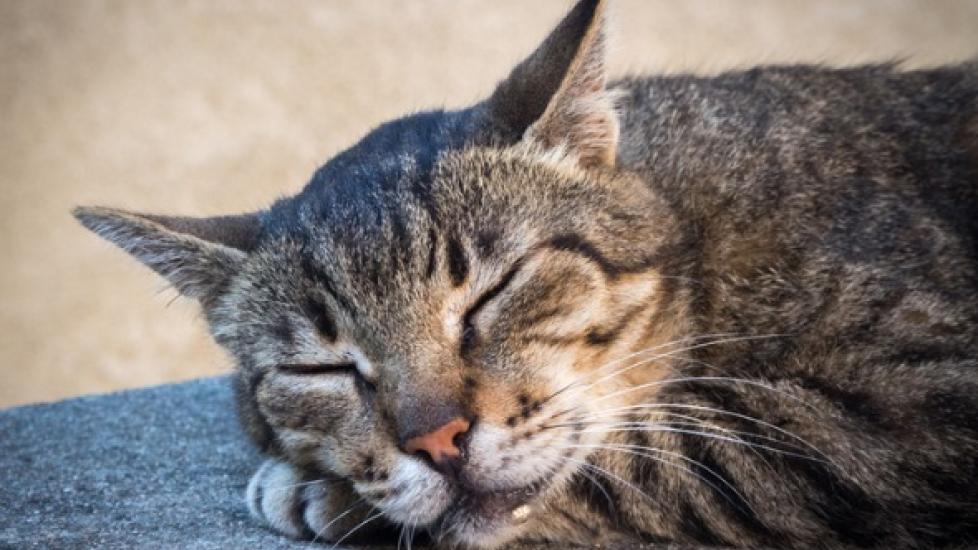 Cats are known for their meticulous grooming habits and seemingly aloof demeanor, but when it comes to drooling, they can be quite mysterious. While dogs often have a reputation for slobbering on our favorite possessions or leaving wet spots on the couch, cats typically keep their saliva to themselves—unless something is amiss. Understanding why your feline friend might be drooling can help you provide them with the care they need and maintain their overall well-being. Here’s what you should know about cat drooling:
Cats are known for their meticulous grooming habits and seemingly aloof demeanor, but when it comes to drooling, they can be quite mysterious. While dogs often have a reputation for slobbering on our favorite possessions or leaving wet spots on the couch, cats typically keep their saliva to themselves—unless something is amiss. Understanding why your feline friend might be drooling can help you provide them with the care they need and maintain their overall well-being. Here’s what you should know about cat drooling:
Normal vs. Abnormal Drooling:
1. Normal Drooling: Cats may occasionally produce excess saliva due to certain factors that don’t necessarily indicate an underlying issue. For instance, some cats drool after being petted around the face area because of stimulation in the salivary glands. Similarly, the presence of tasty food or treats can elicit a drooly response from even the most dignified kitties. These instances are usually nothing to worry about unless accompanied by other symptoms.
- Abnormal Drooling: When excessive drooling becomes persistent or is accompanied by behavioral changes, discomfort, or other signs of illness, it could signal various health problems. It’s crucial to observe your cat closely and seek veterinary attention if necessary.
Potential Causes of Abnormal Drooling:
1. Oral Health Issues: Problems such as tooth decay, gum disease, or oral infections can lead to pain and inflammation within the mouth, which can cause excessive salivation.
-
Dental Disease: Just like humans, cats can develop dental issues that not only affect their smile but also their comfort level. Broken teeth, abscesses, or severe tartar buildup can irritate the mouth and trigger drooling.
-
Foreign Objects: If your cat swallows or chews on a foreign object (such as string, yarn, or plastic), it can become lodged in the throat or digestive tract, leading to irritation and subsequent drooling.
-
Gastrointestinal Distress: Upset stomach, nausea, or vomiting can sometimes manifest through drooling, indicating distress within the gastrointestinal system.
-
Nervousness/Stress: Changes in environment or routine can cause anxiety in pets, potentially resulting in nervous drooling. This type of stress-induced salivation is more common in highly sensitive animals.
-
Medical Conditions: Certain medical conditions, including kidney failure, liver disease, and hyperthyroidism, can indirectly impact the mouth and salivary production, contributing to abnormal drooling.
-
Allergic Reactions: Whether to food, environmental allergens, or medications, allergic reactions can result in a variety of symptoms, including drooling.
What To Do If Your Cat Is Drooling Excessively:
1. Monitor Behavior: Look out for any additional signs of discomfort or illness, such as lethargy, loss of appetite, or bad breath.
-
Observe Diet: Check whether there have been recent dietary changes that could be causing gastrointestinal upset.
-
Check Environment: Ensure there haven’t been significant alterations in your cat’s surroundings that might be stressful.
-
Seek Veterinary Help: Schedule an appointment with your vet if you notice persistent or unusual drooling. They will perform a physical examination, possibly run tests, and offer advice tailored to your cat’s specific needs.
Remember, every cat is unique, and what constitutes normal behavior can vary widely among individuals. By staying observant and consulting professionals when needed, you can ensure your cat lives a happy, healthy life free from unnecessary discomfort. Regular check-ups with the veterinarian and maintaining good oral hygiene practices at home can contribute significantly to preventing many causes of abnormal drooling.
